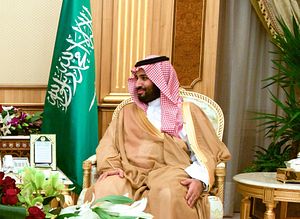A few days ago, the Kingdom of Saudi Arabia agreed to offer Pakistan $3 billion as a balance of payment support. Moreover, the Kingdom has also agreed to provide Pakistan a one-year deferred payment facility for oil imports, worth up to $3 billion.
About three weeks ago, Riyadh refused to lend Pakistan any financial support while putting out serious conditions if Islamabad were to access any monetary support from the Kingdom. What has changed during the past few weeks so that Islamabad has not only been granted $6 billion from Riyadh but — according to Pakistan’s Foreign Office — there are no conditions attached with the financial support?
A few weeks ago, the conversation revealed desperation on the part of Islamabad for economic support from an old friend, Riyadh. On the contrary, Riyadh seemingly had no interest in Islamabad’s request without laying down its own conditions, which apparently Pakistan’s leadership didn’t find feasible to its national interests. Reportedly, a few weeks ago, in exchange for its financial support, Riyadh asked for Islamabad’s military support to help Saudi Arabia in its military campaign in Yemen. Moreover, Riyadh also showed interested in building two major oil refineries in Gwadar, next to Iran’s border, which the former would virtually operate without any intervention from the Pakistani government.
This brought Pakistan back to the International Monetary Fund (IMF). The IMF has not only necessitated complete transparency from Pakistan on major Chinese projects being implemented in the country under the China-Pakistan Economic Corridor (CPEC) but has also made it clear that the organization will demand tough regulations from Pakistan domestically. On the other hand, Washington’s policy of putting pressure on Pakistan has also found its way into the official language of the IMF demands. Moreover, the amount of money which Pakistan needs is not likely to come from the IMF alone.
But changes in Saudi Arabia over the past two weeks may have increased Pakistan’s strategic significance for the Kingdom domestically. The murder of a Saudi journalist, Jamal Khashoggi, inside the Saudi consulate in Turkey has brought unprecedented pressure on Riyadh over the past two weeks. As of now, the change in Riyadh’s policy in terms of allocating Pakistan $6 billion appears to be due to the mounting international pressure on the Kingdom. Moreover, the change in policy may have also been due to growing domestic pressure on the Saudi leadership. In such an environment, Pakistan’s military support for the kingdom, which Riyadh would hope to have in times of a domestic crisis, means everything.
One can argue that the death of Khashoggi has revealed to the Kingdom that, with all its money and influence, Saudi Arabia is susceptible to domestic and international pressures. It’s unclear whether the crown prince, Mohammed bin Salman, who has been accused of ordering Khashoggi’s elimination, can survive the growing pressure over the murder. The whole episode has somehow convinced the Kingdom that Pakistan’s support will be invaluable in the event of a domestic crisis where the House of Saud or its current leadership is under threat. Pakistan, on its part, has always given assurances to the Kingdom that the country stands ready to support Riyadh’s domestic security.
Pakistan’s foreign minister may be right when he says that Riyadh has placed no conditions in exchange for the bailout money it pledged to Pakistan recently. Arguably, before Khashoggi’s murder, Saudi Arabia’s demands were more on the lines of the country’s foreign policy. However, after Khashoggi’s murder, the kingdom is more concerned about its dampening support internationally and domestic anger, which may pose a serious threat to the current Saudi leadership.
While the murder of Khashoggi has been condemned globally, Pakistan has not taken any position. Rather, Pakistan’s top leadership joined a major investment conference in Saudi Arabia, nicknamed as “Davos in the desert,” which was boycotted by various global financial firms and public figures. The Kingdom’s financial support may provide Islamabad some breathing space for the next few months but it’s not going to be enough when it comes to Pakistan avoiding the IMF or dealing with the overall economic challenge that Pakistan currently faces.
The Saudis may have pledged financial support to Pakistan but it’s unclear whether Pakistan will still have the assured money at its disposal if the Kingdom decides to increase its demand list in the coming months. Islamabad will have to take some drastic measures over the next few months if the country is to get out of the current economic mess. For now, the Saudi money can keep Pakistan’s economy on the ventilator for the next few months.
































